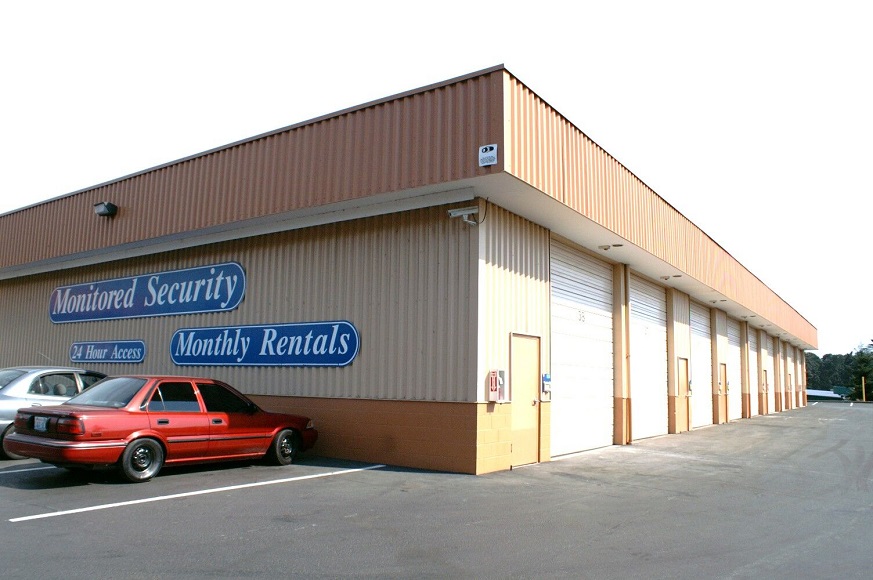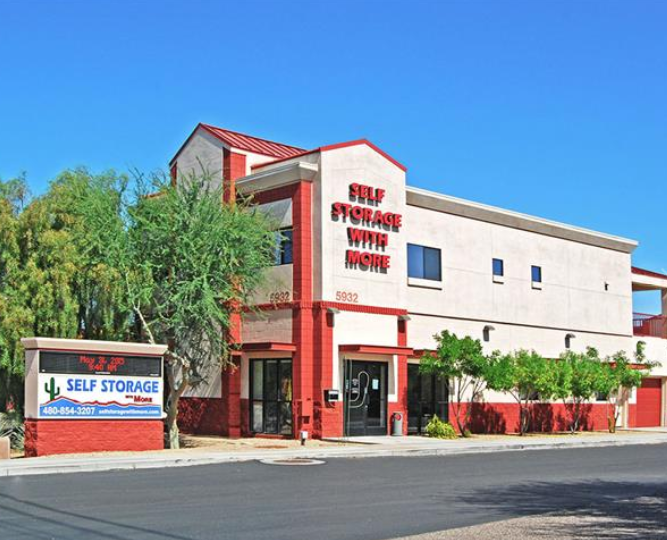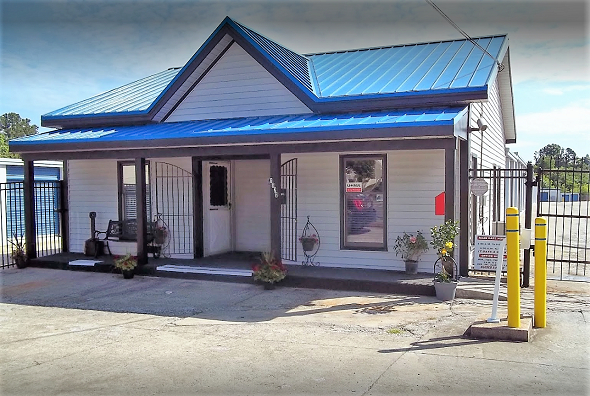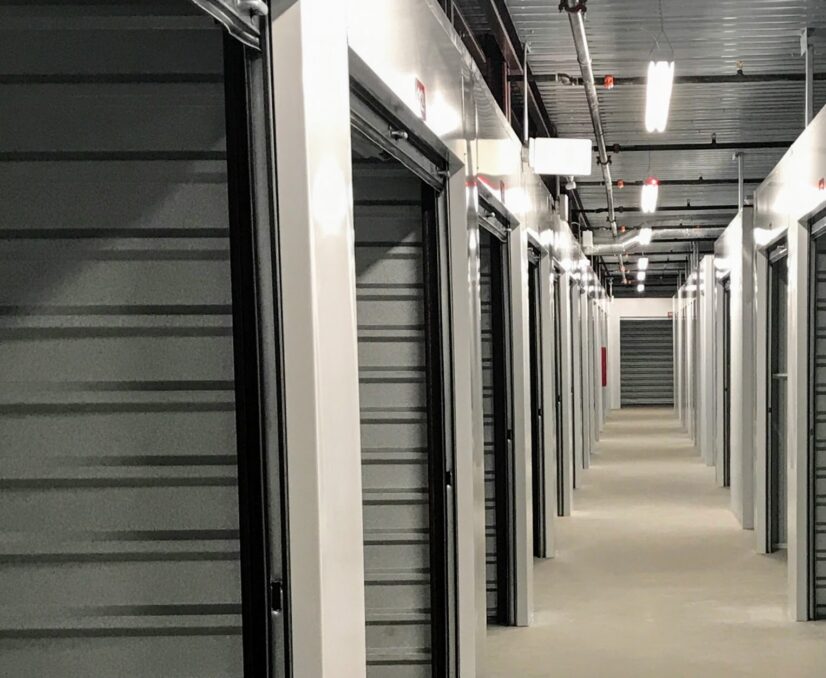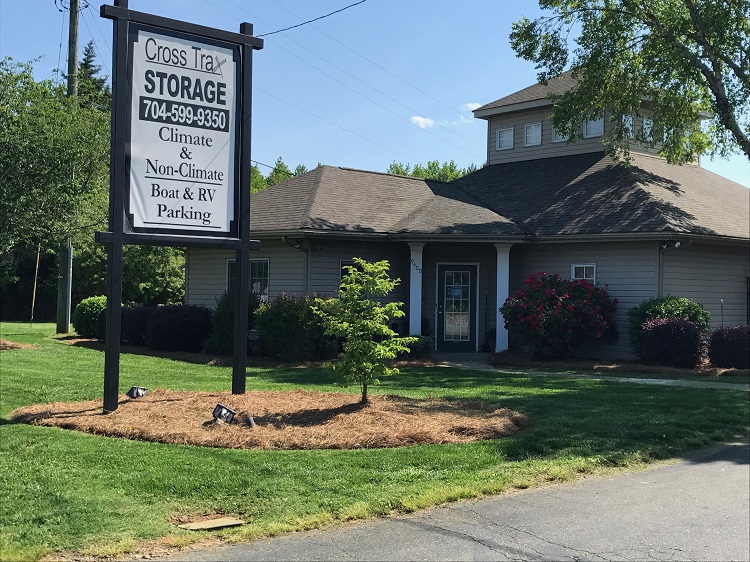Add Value to your Self Storage Asset: Strategic Planning
Add Value to Your Self-Storage: Strategic Planning
By: Scott Eckert, Advisor

Implement a Strategic Plan
Self-storage is a unique asset class with its own set of challenges. As with any investment, it is critical for operators to develop a strategic plan that identifies those critical challenges and builds an approach to dealing with them effectively. Most operators know that developing a strategy is important, but almost all find it daunting to implement or difficult to communicate. Savvy operators have learned to navigate through unpredictable markets and prosper by developing, implementing, and committing to a strategic plan. In certain instances, the potential to create or add value is significant when a strong strategic plan is put in motion.
A strategic plan is a roadmap to grow your business. Goals must be specific and realistic. A well-crafted plan clearly defines the goals or desired outcome and includes a subset of major steps or actions needed to reach it. However, constructing a plan is only one part of the process. Once designed, a strategic plan should be used as a communication tool that coalesces all the stakeholders around a shared vision. Without implementation or failing to communicate your strategies, a strategic plan is worth no more than the paper it’s printed on.
Operators often have a plan and know what changes they should implement to increase revenue or gain efficiencies but fall short in taking the appropriate steps in achieving their desired outcome. This may require rental rate analysis, a change in procedures, or new approaches to marketing.
Markets are unpredictable, volatile, and susceptible to threats. The fear of the unknown is what scares so many operators. Whether it is the fear of losing customers or relinquishing control to management, the owner must overcome their fears and face their challenges head-on to generate new results. Making good decisions can lead to profits, but mistakes are costly. Leap out of your comfort zone and take decisive action, even in the face of uncertainty.
The following information provides tips and considerations for owners and managers to explore throughout the strategic planning process:
Raise Rents and Keep Customers Happy
Owners suffer through paying bills for a less than full facility and leave money on the table when they fail to increase rents on a scheduled basis. Prudent operators, however, will enhance revenue by raising rents on existing tenants. From my experience talking with owners, many continue to keep long term customers at the same rent that they’ve paid since the beginning of their lease, even if the rent is well below market levels. Most of the time it’s because they fear the customer will leave and they’ll be stuck with a vacant unit.
Rental rates vary across markets. Before you raise the rent on a tenant, you will want to do some market research. Speak with other owners and managers to see where your rents stack up. A weekly market survey of competitive properties located within your 3 to 5-mile trade area is the best way to estimate the achievable market rents for your facility.
Be realistic in your assumptions and commit to a plan. Planning, cost management, and revenue forecasting are essential to any business and must be done. However, these activities can be dangerous traps for a strategic operator if their plans are reliant on poor assumptions. Make sure your unit mix is optimized and determine what unit types are in the greatest demand.
Many owners fall into the trap of applying an across-the-board rent increase to all tenants instead of assigning value to each particular space. A blanket increase essentially weakens the operator’s position by falsely assuming all units can absorb an increase. Conversely, a savvy operator will analyze the market rents for each type of unit and base their estimates on specific unit types all while measuring the tenants’ capacity to pay. Paying attention to tenancy, length of stay, and in-place rents are highly important.
When notifying your tenants of a rent raise, provide a list of any recent upgrades and encourage them to check nearby pricing. If priced appropriately, you should experience less turnover and keep more happy customers. Many customers will accept the rental increase as reasonable if they know what value they’re getting in return.
Increase Economic Occupancies
Occupancy is typically split up into two categories: physical and economic. Both numbers are important measurements when evaluating a property’s performance and are used in the valuation of a property.
Physical occupancy measures the percent of net rentable square footage that is occupied.
Economic occupancy measures the actual gross income as a percent of the potential gross income.
When evaluating vacancies, it is important to compare the actual rent received to the potential rent, and not just focus on the physical occupancy. Oftentimes, the asking or offering rents at self-storage facilities are higher than the actual collected rent or contract rent. This is a consequence of discounts or concessions that are offered to customers initially to get their business. Increasing the contract rent levels at a facility is a must for all storage owners. Limit or eliminate concessions on unit sizes with high turnover rates. An increase in contract rent levels will maximize economic occupancy.
Monitor Operating Expenses
Typically, the operating expenses should approximate between 30 percent and 40 percent of gross income. Many of these expenses are fixed and others are variable. Managing the variable expenses, or the ones you can control is essential to monitoring your operating expenses.
- Administrative Costs – When is the last time you price shopped for all your administrative needs? Whether it’s for your internet and phone bill or office supplies, taking the time to call a few competitors can translate into significant savings each year.
- Utilities – Many self-storage facilities offer climate-controlled units. These are indoor air-conditioned or heated units. Try to maintain the temperature at 60-80 degrees, or whatever range you think you can truly maintain and ensure tenant satisfaction. Installing motion detector and LED lighting is another way to reduce your electricity costs.
- Advertising – For some existing facilities, especially those located along roadways with excellent visibility and signage, an extensive advertising campaign may not be necessary. However, as nearby competition increases, owners are recognizing the importance of proactively marketing the store. Analyze your marketing and advertising costs and reevaluate where you are spending your marketing dollars. As trends evolve, so do marketing tools. Make sure you market the facility across online and social media platforms.
- Repairs and maintenance – Repairs and maintenance expenses typically include all third-party maintenance service contracts and the cost of maintenance and repairs supplies. Proper maintenance includes trash removal, landscaping, pest control, security gate maintenance, and other maintenance items. Repairs and maintenance expenses are very property specific. Much of the preventative maintenance can be done by a handy owner or manager. Otherwise, get a few quotes from local contractors to make sure you get the best price and the work is done right.
Maximize Other Income
Other income is typically associated with items such as forfeited deposits, late charges, locks, insurance, and other miscellaneous charges. It also includes sales and commission income such as truck rentals, box and packing supplies, towing accessories, etc., and the income derived from these sources is a net figure. The additional services and products offered at your facility should provide convenience for your customers, and as a result, you can expect a boost in additional revenue.
Stay Customer Focused
Managers are viewed by your community as the face of the company. As a self-storage manager, it’s your duty to provide excellent customer service. Honesty, flexibility, and dependability go a long way in the eyes of the customer. Master these skills, and you will already be ahead of the pack.
Focus your energy on the important choices that influence customers to spend money at a storage facility. Get feedback from tenants on a routine basis. The customer will always decide to spend their money at the location that provides a superior value proposition.
Navigating the self-storage industry can be an ongoing process that is best achieved by utilizing the help of industry professionals. This is why our company offers a variety of industry-specific reports and facility valuations to storage owners at no cost. Before you consider investing in your facility, reach out to one of our advisors to see how your market is performing and the best use of your time and money.

Scott joined The Storage Acquisition Group in 2017 to source acquisition opportunities throughout the Mid-Atlantic region. Scott’s background is in real estate appraisal and valuation assignments of multifamily property throughout Virginia.



 The Storage Acquisition Group specializes in purchasing storage facilities and portfolios nationwide. Uniquely, we allow owners to sell direct without having to list their facility. With our 4-tiered approach, Market Analysis, Acquisitions, Underwriting, & Closing Support, The Storage Acquisition Group is able to help owners navigate a simple sales process while netting the highest possible profit.
The Storage Acquisition Group specializes in purchasing storage facilities and portfolios nationwide. Uniquely, we allow owners to sell direct without having to list their facility. With our 4-tiered approach, Market Analysis, Acquisitions, Underwriting, & Closing Support, The Storage Acquisition Group is able to help owners navigate a simple sales process while netting the highest possible profit.
